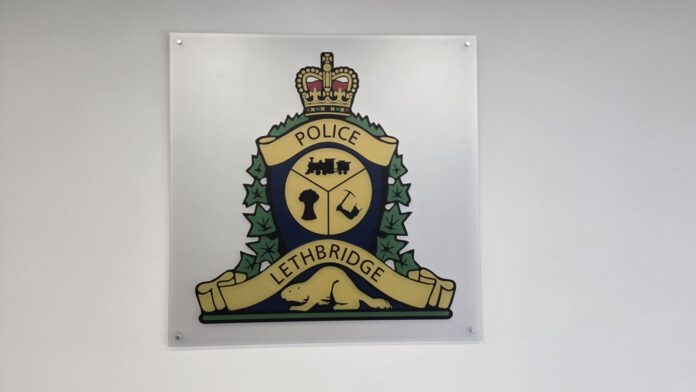The Lethbridge Police Service has teamed up with Wounded Warriors Canada for a new program.
Down Regulation Skills Training, or DRS-T, is the first of its kind in North America.
It has been developed for police service members and other first responders who routinely face the threat of serious injury, death and violence.
The LPS explains that the program equips responders with practical and simple tactics they can use following a highly stressful call or during the event itself.
Officials state that it is estimated over half of civilians will experience at least one potentially traumatic event in their life. Meanwhile, police officers are reportedly exposed to about three to five traumatic events every six months. The LPS says this means officers could experience up to 200 per cent more trauma than the average person.
“We recognize the importance of proactively supporting our officers by giving them the education and tools to help reduce the risk of trauma-related injuries,” says Deputy Chief Gerald Grobmeier.
In 2024, Grobemeier started working with Wounded Warriors Canada to build what LPS dub a ‘resiliency training model’ that could be used as close to an incident as possible. Following extensive work alongside Dr. Tim Black, WWC’s National Clinical Director, the concept has become a reality. Team members with WWC offer mental health services to agencies, professionals and their families who are exposed to trauma.
The LPS explains that high-risk and intense physical activities have physiological components that require training, monitoring and on-going maintenance.
Officials say just like high performance athletes who use recovery time to recharge their muscles, first responders must do the same for their nervous system to avoid long-term physiological stress.
At the core of DRS-T is the BETR model, which stands for ‘Body, Emotions, Thoughts and Relationships’. This helps guide officers through a short self check-in, which can down-regulate the body’s stress response when the natural process is interrupted. Grounding techniques taught to officers will help them stay present in the moment, which can reduce the risk of injury after a traumatic event.
LPS says the first training session involved Dr. Black spending a full day with the service’s tactical team, observing scenarios to get a better understanding of the pressures they face. That observation period was followed by classroom learning and more hands-on scenarios for officers to put their new skills into action.
“The Wounded Warriors Canada-Lethbridge Police Down Regulation Skills Training represents a unique approach to developing supports and providing skills for Trauma-Exposed Professionals, where our two organizations have joined forces and combined expertise in our respective fields to create a program alongside the professionals it is meant to serve,” says Dr. Black.
“Collaborating with the Lethbridge Police Tactical Team in developing DRS-T ensures the training has real-world relevance and is being field-tested with the very people who risk the most and who have the most to gain.”
The LPS says the DRS-T program will be put in place across the whole service, to make sure all officers have access to the tools needed to protect their mental health, do their jobs and protect the community.







